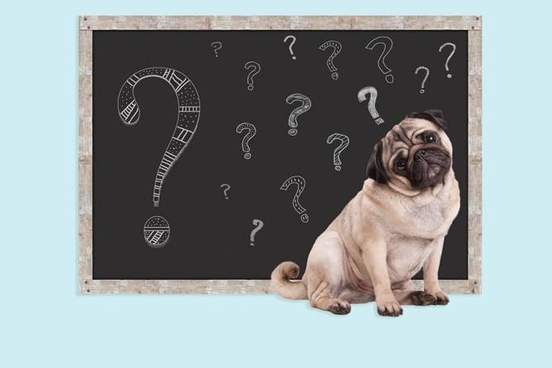
Nice
Original Definition:
trivial; foolish or stupid
Example:
… it will therefore require a close and wary attendance: a physician that has a nice and tender patient, must be very assiduous in his care, observant of all symptoms…
Richard Allestree, The gentlemans calling, 1660
About the Word:
When nice came into English in the 14th century it meant "foolish," which is also what it meant in the Anglo-French that it came from, and ultimately also in Latin nescire meaning "not to know." It didn't come to mean "pleasant or agreeable" until the 19th century, after having gone through a stage of meaning "very particular" or "finicky" from about the 16th century. It still sometimes means "finicky" in uses like "too nice a palate to enjoy fast food."

Explode
Original Definition:
to drive from the stage by a noisy expression of dislike
Example:
Shal not these grosse blind doctors (who are in deed ye verie sepulchre of all rottennes) yet explode and detest these anabaptistical phantsies?
Henry Barrow, A brief discouerie of the false church, 1590
About the Word:
The original meaning of explode comes from the Latin verb plaudere meaning “to make a noise by loud clapping.” This is the same root from which we get the word applaud. Ancient Romans showed their approval of a theatre performance by applauding (Latin applaudere), and conversely, they showed their disapproval of a performance by clapping loudly to drive the performers from the stage. The word for this was explaudere or explodere. Another word we get from Latin plaudere is plausible, "deserving of applause."

Bully
Original Definition:
sweetheart, darling - used of either sex
Example:
"I kiss his dirty shoe, and from heart-string I love the lovely bully. What is thy name?" - William Shakespeare, Henry V, 1600
About the Word:
The meaning of bully has been changing for almost five hundred years now, with the earliest evidence of the word dating back to the 1530s.
Along the path from heartthrob to harasser, bully has also meant 'a man of outstanding physical powers,' 'a hired ruffian,' 'the boss of a logging camp,' 'any of several blennioid fishes,' and numerous other things.

Buxom
Original Definition:
marked by obedience
Example:
"[We] adore and worship thy majesty, and tremble at thy judgments and works, and therefore pray always that we may content with thy will, and be buxom and obedient thereto." - Henry Bull, Christian Prayers and Meditations, 1566
About the Word:
Buxom is thought to have come from the Old English word būhsum, which shares a common ancestor with the Old English word būgan (meaning 'to bend').
In addition to its current primary meaning of 'full-bosomed,' buxom has at times in the past been used with such varied meanings as 'physically flexible' and 'full of gaiety.'

Disappoint
Original Definition:
to remove from office
Example:
"And under this power are comprehended all the other rights and marks of soveraigntie ... to proclaime warre, or to make peace: to take knowledge in the last appeale of the iudgments of all Magistrates: to appoint or to disappoint the greatest officers ..." - Pierre de la Primaudaye (Translated by T. Bowes), The French Academy, 1586
About the Word:
It seems as though such a word should be quite simple; if you appoint a person to some position you can also disappoint them from it.
Yet the English language does not always work in a way that makes sense. Not only do words change meaning, but some of our prefixes do not always mean the same thing. For instance, dis- can mean 'do the opposite of,' as in disqualify, and also can mean 'completely' as in disannul.
It would certainly be pleasant if we could immediately disappoint those who disappoint us, but we generally have to wait for an election to do this.

Fizzle
Original Definition:
to break wind quietly
Example:
"But the false old trot did so fizzle and fist, that she stunk like a hundred devils, which put the poor fox to a great deal of ill ease, for he knew not to what side to turn himself, to escape the unsavoury perfume of this old womans postern blasts." - François Rabelais (translated by Thomas Urquhart), Gargantua and Pantagruel, 1534
About the Word:
If you are in search of an accurate euphemism for a certain four-letter word, beginning with F, that designates an expulsive bodily function, look no further than fizzle.
For the first several hundred years that this word was in use as a verb in English (since 1533) it only referred to the act of passing wind silently. Fizzle did not begin to refer to making a sputtering sound until the 19th century, at which point the older meaning had, well, fizzled out.

Torpedo
Original Definition:
electric ray
Example:
But the torpedo defended himself from his enemies by means of the electric shock, before academies thought of making experiments in electricity; and the limpet understood the power of the pressure of the air, and attached itself to the rocks, by forming the vacuum with its pyramidical shell, long before the air-pump was set a-going.
—Bernardin de Saint-Pierre, St. Pierre's Studies of nature, 1836
About the Word:
The word torpedo was first borrowed into English in the early 1500s from Latin torpēdō to refer to the electric ray (this is not the same animal as the electric eel). The word began to be used for an underwater vessel developed by American inventor David Bushnell, and later for the self-propelled torpedoes we know of today.

Garbage
Original Definition:
the internal parts of an animal: viscera
Example:
"Take white Pigeons, and fatten them with Pyneapple kernelles, the space of xv daies, and than kil them: and having cast away the head, the feete, and the guttes, with all the garbage, distill them in a limbecke ..." - Girolamo Ruscelli (translated by W. Warde), The Secretes of the Reverende Maister Alexis of Piemount, 1558
About the Word:
Garbage is hardly the only food-related word to have taken on a meaning that is far afield from what it once was. Meat formerly was used to refer to food of any kind, and not just to the flesh of an animal. Also liquor was once used to refer to liquid of any sort, rather than to a substance that is productive of hangovers.

Luxury
Original Definition:
lechery, lust
Example:
"What? shall we live like beasts promiscuously, Without distinction in foule luxurie?" - Juvenal (Translated by William Barkstead), That Which Seemes Best is Worst, 1617
About the Word:
The current meaning of luxury carries a far more positive connotation today than it did when it first entered the language (a process that linguists refer to as amelioration).
Luxurious likewise had a more negative meaning when it first entered the language ('of, relating to, or expressive of especially unrestrained gratification of the senses').
However luxuriant originally meant 'productive,' and luxuriate once meant 'to grow profusely'.

Ovation
Original Definition:
a ceremony attending the entering of Rome by a general who had won a victory of less importance than that for which a triumph was granted
Example:
"In ancient Rome an ovation was an inferior triumph accorded to victors in minor war or unimportant battle.... An enthusiastic demonstration in honor of an American civilian is nothing like that, and should not be called by its name." - Ambrose Bierce, Write It Right, 1909
About the Word:
Some people are of the opinion that the word decimate should properly only be used to refer to a punishment or event in which every tenth person is killed, since that is how the word was used by the ancient Romans.
Strangely enough, very few of these people likewise insist that ovation should be held to the same standard.
And there are other English words that are descended from Latin words of greatly different meaning: century (from Latin centuria) once referred to 'a subdivision of the Roman legion,' and libertine comes from libertinus, which in ancient Rome was used to refer to a freed slave.

Popularity
Original Definition:
democracy as a principle or a form of government
Example:
"For conceiving that the Prince my Father had usurped an Authority which did not belong unto him, and desiring to reduce the Government into a Popularity, and to prevent his Successors from raigning after him, see how they argued the matter amongst themselves." - Madeleine de Scudéry (translated by F.G.), Artamenes, 1653
About the Word:
While the more cynical among us might argue that our current system of government is still largely based on popularity, it is a popularity that is a bit different from the original meaning of the word.
Popularity has been in use since at least 1546, the year in which the Bishop of Winchester used it in a letter to Lord Paget, writing of 'an inclination they have to a popularity'. The letter is concerned with grave political matters of the time, and not with who is the most liked in the schoolyard.

Prestigious
Original Definition:
of, relating to, or marked by illusion, conjuring, or trickery
Example:
"That strumpet, that inchantresse, ... has stolne faire Truths attire, Her crowne, her sweet songs, counterfets her voyce, And by prestigious tricks in sorcerie, Ha's raiz'd a base impostor like Truths father." - Thomas Dekker, The Whore of Babylon, 1607
About the Word:
Prestigious and prestige both come to English from the Latin word praestigiae, which meant 'conjuror's tricks.'
It's not so difficult to see the connection there when bearing in mind that the word prestidigitation ('sleight of hand') has largely retained its original meaning.
Prestigious did not come to convey renown until the beginning of the 20th century.

Secretary
Original Definition:
one entrusted with the secrets or confidences of a superior
Example:
"She writ to him discreetly the thoughts of her friend, leting him understand that she was the secretary; that she would serve him in all honest things he could desire." - Francisco de Quintana, The History of Don Fenise, 1651
About the Word:
Many other words that have been formed through the addition of -ary (which comes from the Latin root -arius, meaning 'from') have managed to keep their roots and suffixes neatly tied together: beneficiary, constabulary, and planetary.
So it seems rather obvious, when looking at a word such as secretary, that its original meaning had something to do with secrets. Yet somewhere along the way the word slipped free of its moorings and took on a not terribly secret meaning.

Radical
Original Definition:
of, relating to, or proceeding from a root
Example:
…also of certayne herbes, fruytes, and spyces, hauynge the propertye to expelle melancalyke humours, and to comforte and kepe lyuely the spirites, whiche haue theyr proper habitation in the hart of ma, and moderate nouryshyng of the naturall heate and humour, callyd radical, which is the base or foundation, whervppon the lyfe of manne standeth…
Sir Thomas Elyot, 1553
About the Word:
Radical's original meaning, relating to roots, may be unsurprising to botanists who know that radical tubers grow from a plant's root. This botany use is tied to radical's original meaning. But after referring to literal roots, the word began to be used to refer to figurative roots, or origins of something. "Radical reform" (as in politics) was reform at the origin (or root) of a system. Eventually this use extended to any change deemed extreme or very different from the usual.

Clue
Original Definition:
ball of thread or yarn
Example:
…a trayle about the skirt shall runne, the silke-wormes finest, newly spunne; and euery Seame the Nimphs shall sew with th'smallest of the spinners clue…
Michael Drayton, 1630
About the Word:
The sense of clue we know today ("something that guides through an intricate procedure or maze of difficulties") comes from a common trope in mythology and folklore of a ball of yarn or thread being used to help someone out of a maze. One of the most well-known of these stories is the one of the Greek king Theseus who uses a ball of thread to trace his way through a labyrinth to kill the Minotaur, and then follows the thread back out of the maze.





